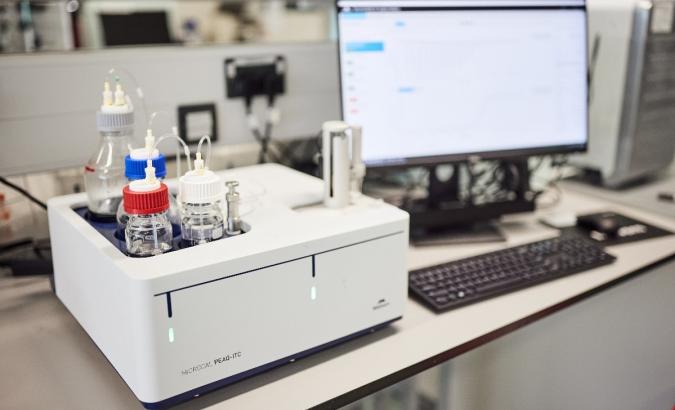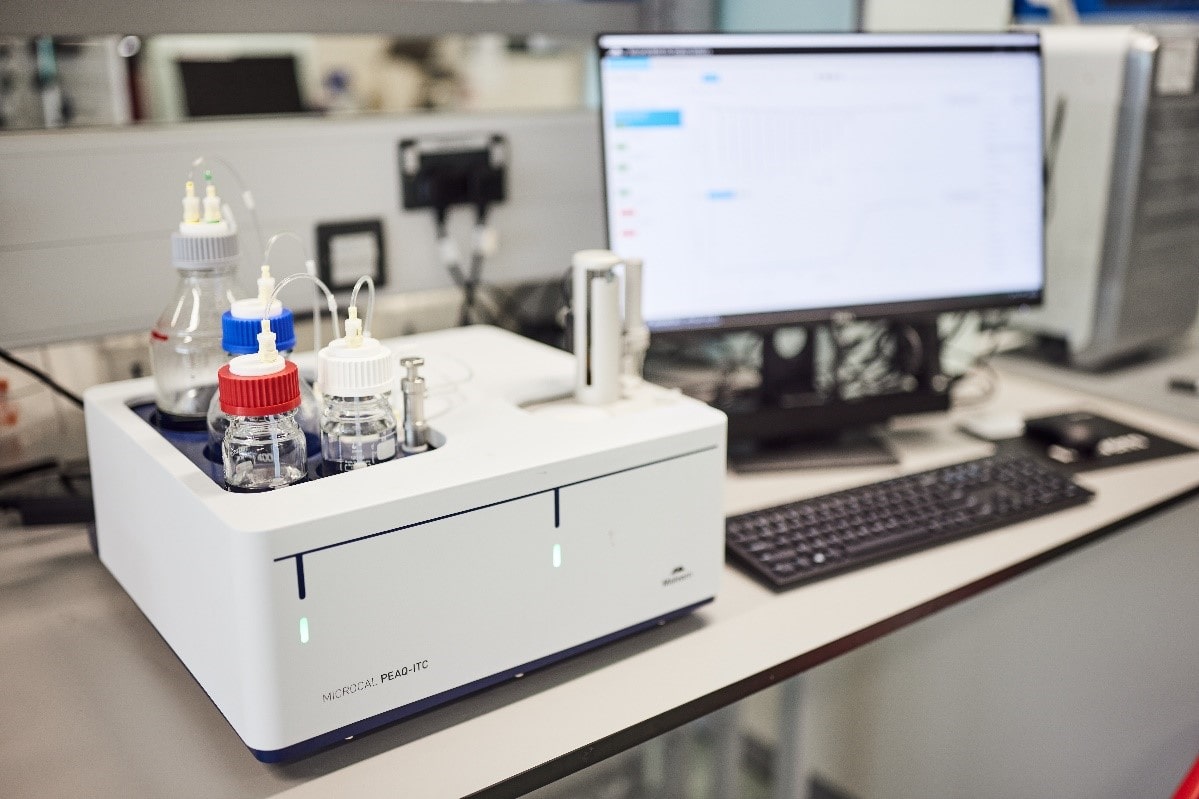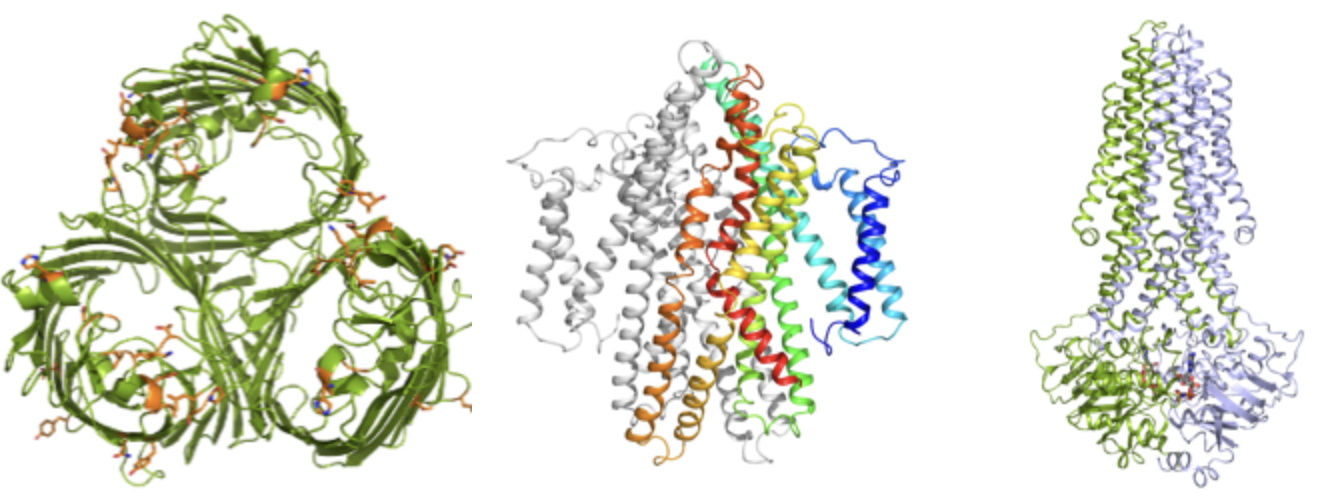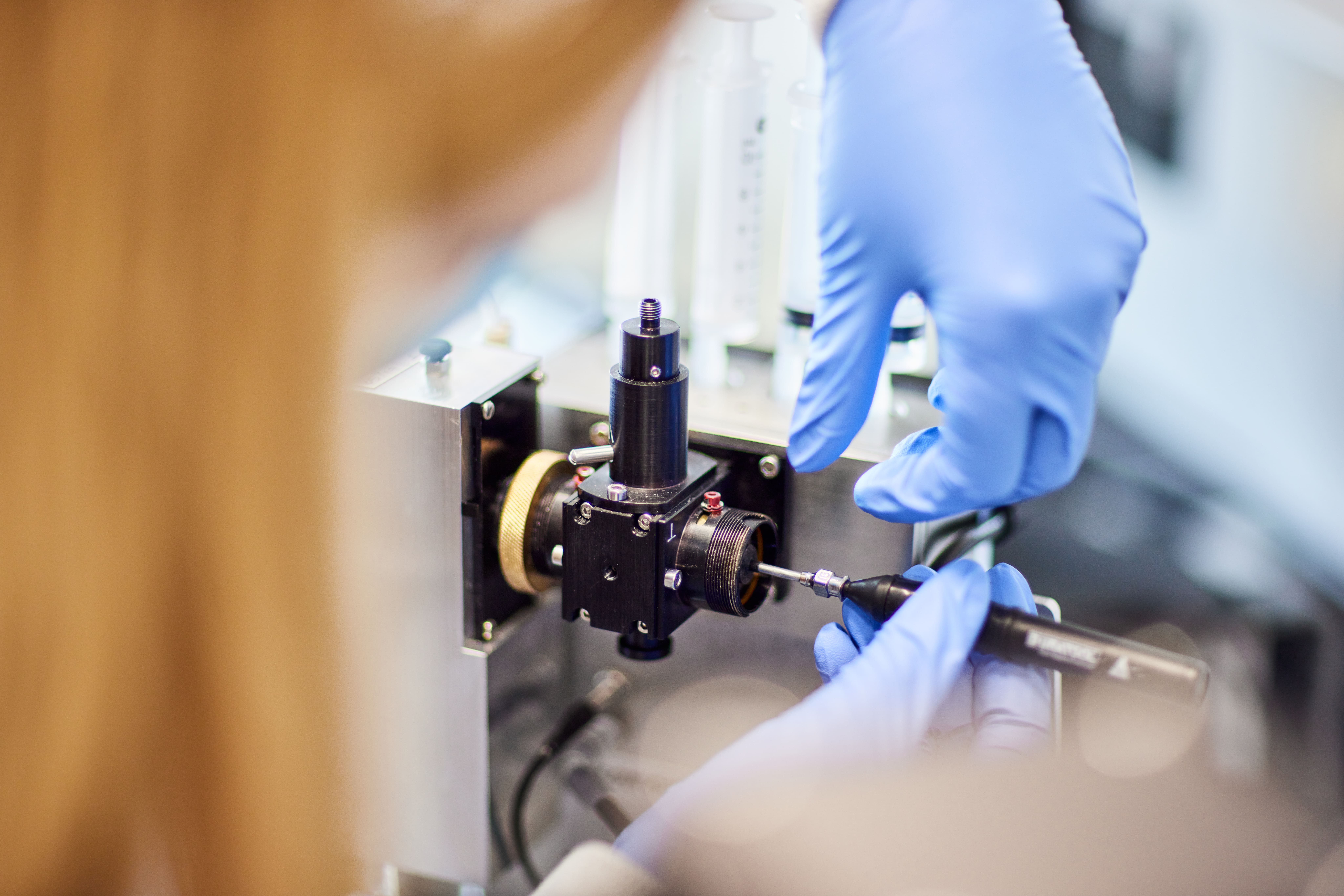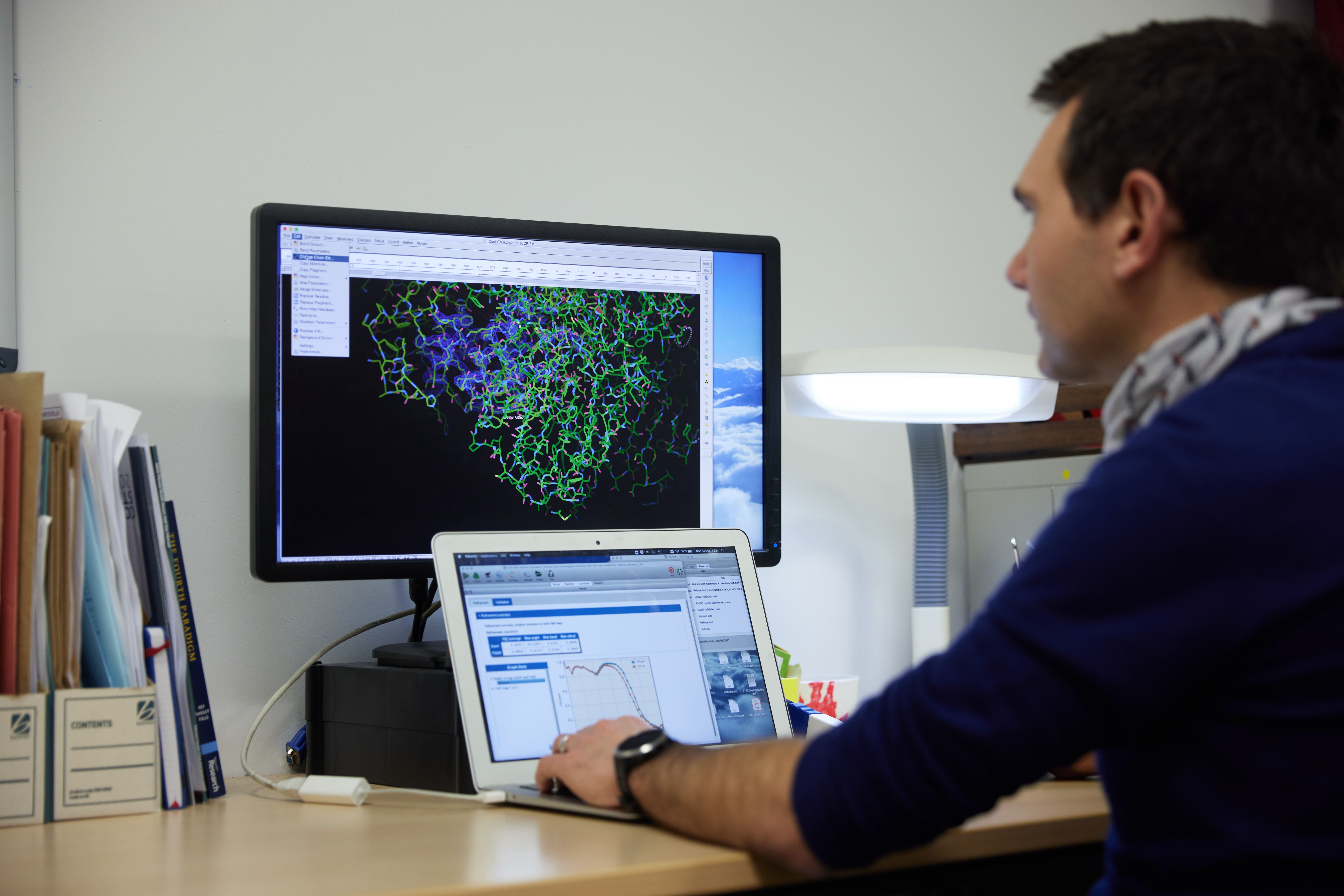Isothermal Titration Calorimetry
Isothermal Titration Calorimetry is a technique that directly measures the heat that is either released or absorbed during the interaction of molecules. Research Complex has two MicroCal manual isothermal titration microcalorimeters; an iTC200 and a PEAQ-ITC. In the microcalorimeter there are two cells, the reference cell and the sample cell. When there are differences in temperature between the cells this gives feedback to heaters inside the instrument, which compensate for this difference and return the cells to equal temperature. One binding partner is loaded into a syringe, which is then inserted into the sample cell that contains the other binding partner. A series of small aliquots are injected from the syringe into the cell solution. If there is binding, heat changes are detected and measured as the difference in power necessary for the instrument to supply to the cells in order to maintain the cells at equal temperature. The system is allowed to return to equilibrium between each injection. The area of each injection peak is then integrated and plotted versus the molar ratio of syringe molecule to cell molecule. The resulting isotherm can be fitted to a binding model from which the affinity (KD), stoichiometry and change in enthalpy (ΔH) are derived. The change in entropy (ΔS) can then be calculated to provide a complete thermodynamic profile of the molecular interaction and elucidate the mechanism underlying the interaction.
